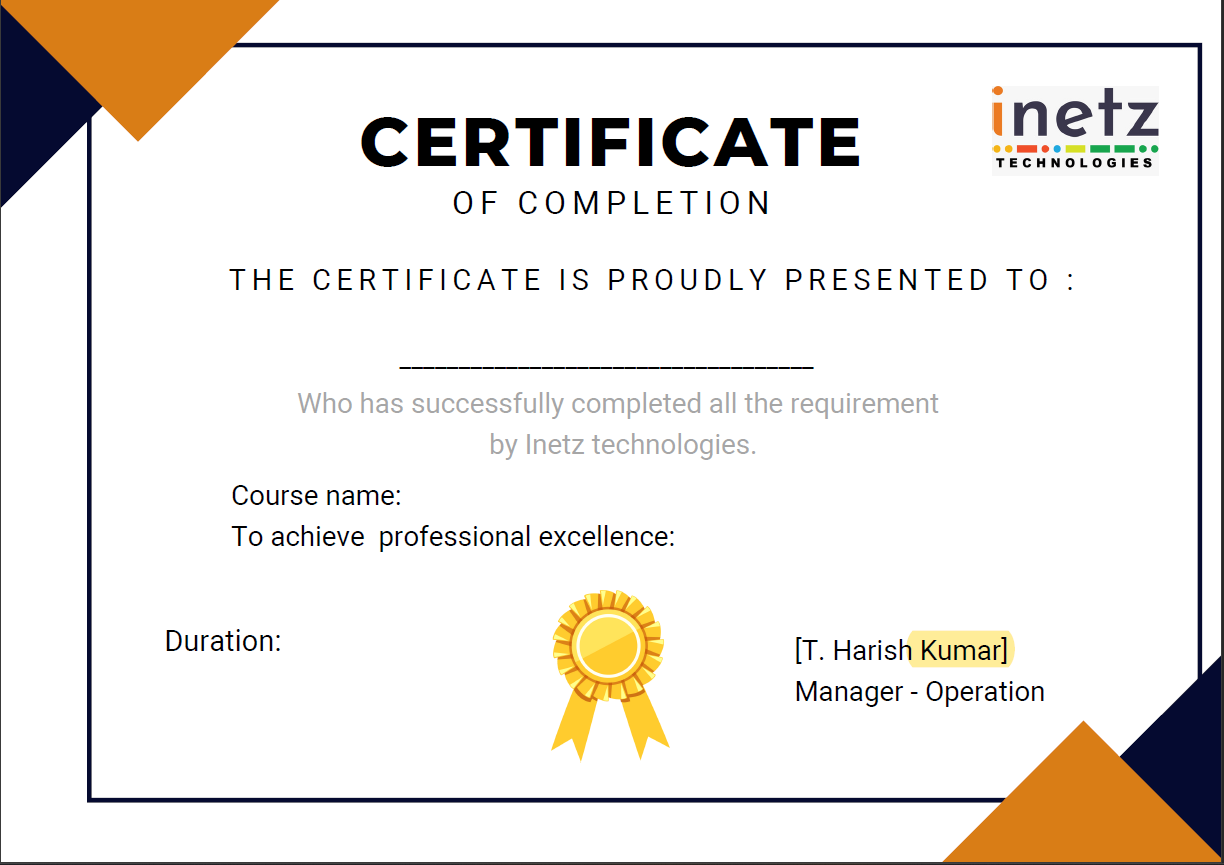Manual-Testing syllabus
Module 1: Introduction to Software Testing
- Definition and importance of software testing
- Role of testing in the software development life cycle (SDLC)
- Types of testing: manual vs. automated
Module 2: Fundamentals of Manual Testing
- Principles of testing: correctness, completeness, reliability, etc.
- Levels of testing: unit, integration, system, and acceptance testing
- Testing techniques: black-box, white-box, and gray-box testing
Module 3: Test Planning and Documentation
- Test planning and strategy
- Test case design and documentation
- Traceability matrix
Module 4: Test Execution and Defect Reporting
- Test execution process
- Defect life cycle and reporting
- Regression testing and retesting
Module 5: Types of Testing
- Functional testing
- Non-functional testing (performance, security, usability)
- User Acceptance Testing (UAT)
Module 6: Test Management Tools
- Introduction to test management tools
- Practical use of test management tools for organizing test cases and reporting
Module 7: Exploratory Testing
- Principles of exploratory testing
- Techniques for effective exploratory testing
Module 8: Usability Testing
- Importance of usability testing
- Planning and executing usability tests
- Challenges and considerations for mobile testing
Module 9: Mobile Application Testing
- Industry best practices in manual testing
- Overview of relevant standards and guidelines




